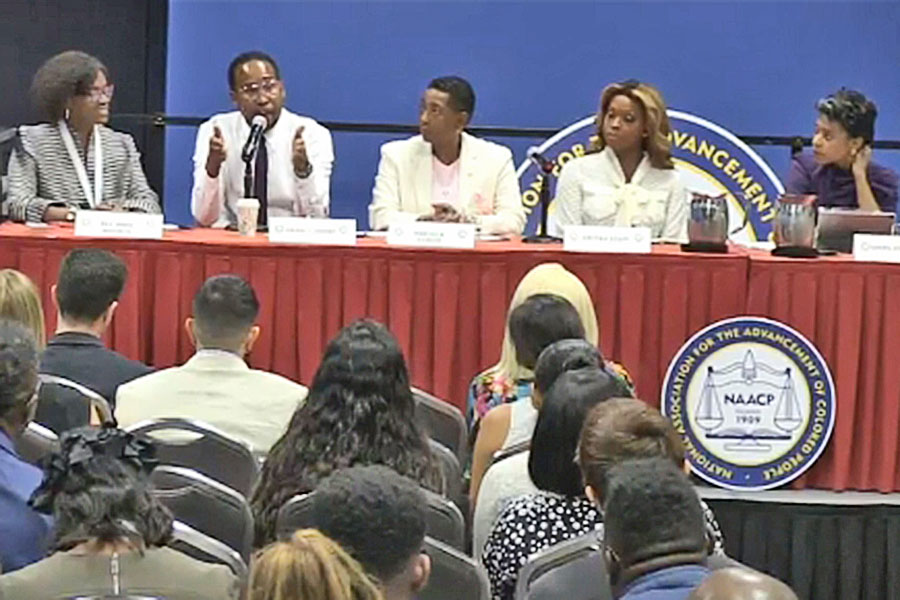To address the ongoing issue of violence against Black LGBTQ people, the national NAACP convention in Detroit hosted two town-hall meetings: “Gender Justice Matters Fireside Chat” and “The State of LGBTQ People of Color in America” on July 21 and July 23 respectively.
Since May, a Black transgender woman and three gay Black men have been killed in Detroit. Two more Black gay men have been shot and wounded according to the Detroit Free Press.
The message at both events was that while Stonewall 50 may be a celebration for some, it is also a stark reminder that Black LGBTQ people are still very much at risk in their communities, and homophobia and transphobia are still a present danger.
Panelists at the discussions included Tiffany Dena Loftin, the NAACP national director for youth and college division; National Black Justice Coalition Executive Director David Johns; and actor Lawrence “Miss Lawrence” Washington, who plays the GNC hairstylist “Miss Bruce” on the drama series “Star.”
Washington spoke frankly about how leadership on all sides is failing LGBTQ people of color.
“One thing I hate is when I’m scrolling through the timelines on my social media is there is such a very small response … as it relates to a trans person’s death, as opposed to when there is a Trayvon Martin, Nipsey Hussle and Eric Gardner,” Washington said to a crowd of more than 200.
Washington said organizations like the NAACP and National Action Network must work to have media report on crimes against LGBTQ people. “When we send you content that this happened, we need you to post it.”
Washington also addressed the impact of self-harm, bullying and suicide on the LGBTQ community.
For Loftin, the issues were even broader.
Non-LGBTQ members of the Black community need to be more aware of LGBTQ issues, she said. This includes following Black LGBTQ organzations and people on social media.
“You’re narrowing yourself to a very small percentage of Blackness and that’s not what Black power, Black solidarity, Black Lives Matter means; none of those things mean that,” Loftin added. “It means all of the Blackness.”
All the panelists asserted that making Black LGBTQ people visible in the media is paramount.
“To show up in households where people get to mirror themselves and you tell stories people are familiar with, I think really helps push healing,” Washington said. The actor attributes his appearance on “Star” with helping him heal a 20-year estrangement with his father.
Loftin told the audience, “Acknowledging the violence and trauma that is happening and speaking out and saying something about it is the first step, then having us take care of ourselves is second.”
“Now, we have to move with the people that we have, the coalitions, to get to solutions,” she added.
The July 23 panel addressed many of the same issues while also highlighting HIV/AIDS.
“HIV infection among gay Black males is out of control,” said Curtis Lipscomb, executive director of LGBT Detroit. Lipscomb added that more must be done to promote the use of condoms, and broached why Black gays and lesbians cling to faith communities.
“Why do you worship a place that vilifies you?” he asked.
Other panelists said engaging with LGBTQ members of the Black community must be prioritized to end stigma and ostracization.
The NAACP is celebrating the 10th anniversary of its LGBTQ Task Force.
